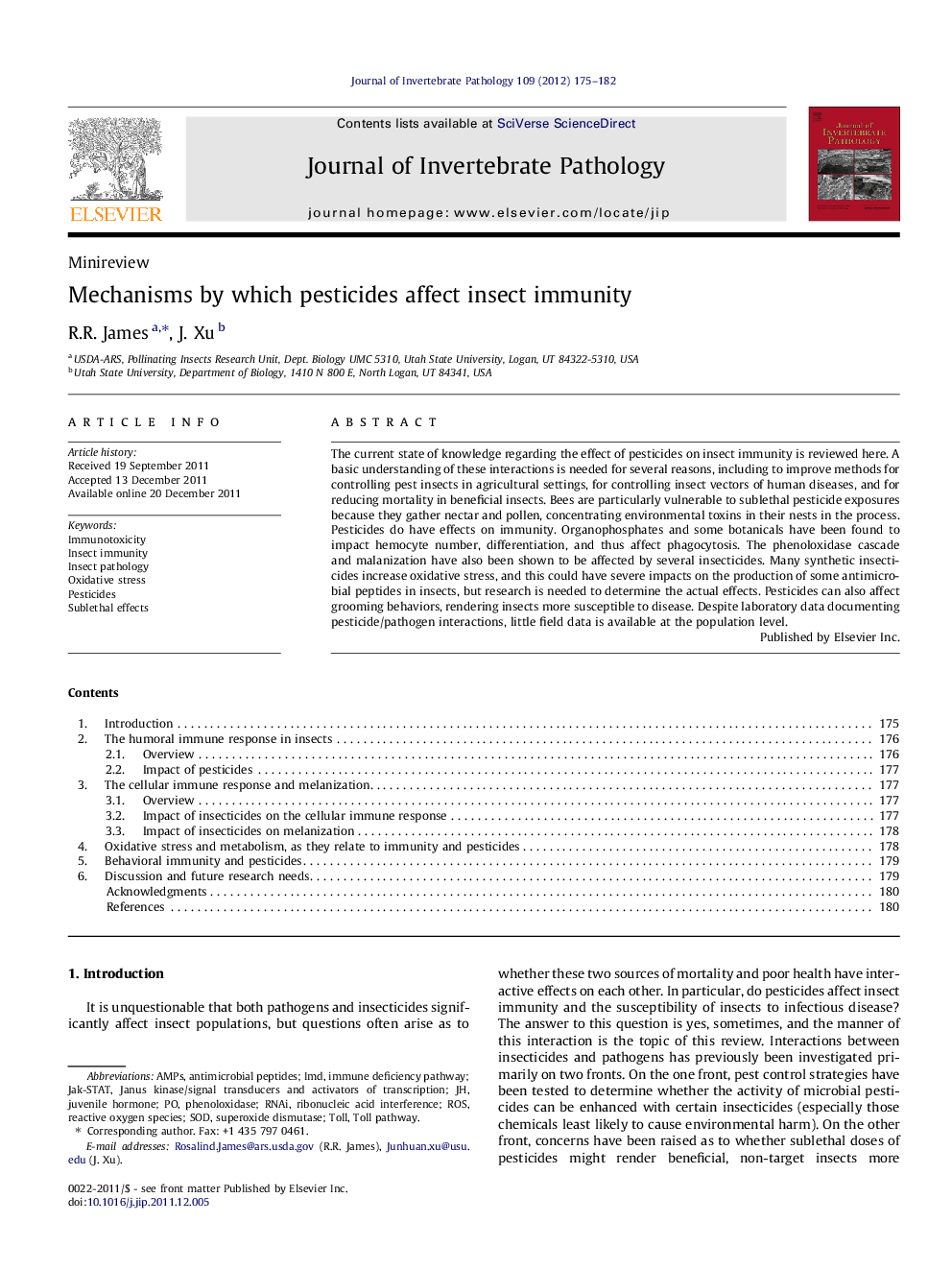| Article ID | Journal | Published Year | Pages | File Type |
|---|---|---|---|---|
| 4557971 | Journal of Invertebrate Pathology | 2012 | 8 Pages |
The current state of knowledge regarding the effect of pesticides on insect immunity is reviewed here. A basic understanding of these interactions is needed for several reasons, including to improve methods for controlling pest insects in agricultural settings, for controlling insect vectors of human diseases, and for reducing mortality in beneficial insects. Bees are particularly vulnerable to sublethal pesticide exposures because they gather nectar and pollen, concentrating environmental toxins in their nests in the process. Pesticides do have effects on immunity. Organophosphates and some botanicals have been found to impact hemocyte number, differentiation, and thus affect phagocytosis. The phenoloxidase cascade and malanization have also been shown to be affected by several insecticides. Many synthetic insecticides increase oxidative stress, and this could have severe impacts on the production of some antimicrobial peptides in insects, but research is needed to determine the actual effects. Pesticides can also affect grooming behaviors, rendering insects more susceptible to disease. Despite laboratory data documenting pesticide/pathogen interactions, little field data is available at the population level.
Graphical abstractFigure optionsDownload full-size imageDownload as PowerPoint slideHighlights► Pesticides can have immunotoxicity to insects, as reviewed here. ► Some pesticides alter hemocyte number and differentiation. ► Some pesticides affect PO and ROS. ► Little is known regarding pesticides and humoral immune responses.
